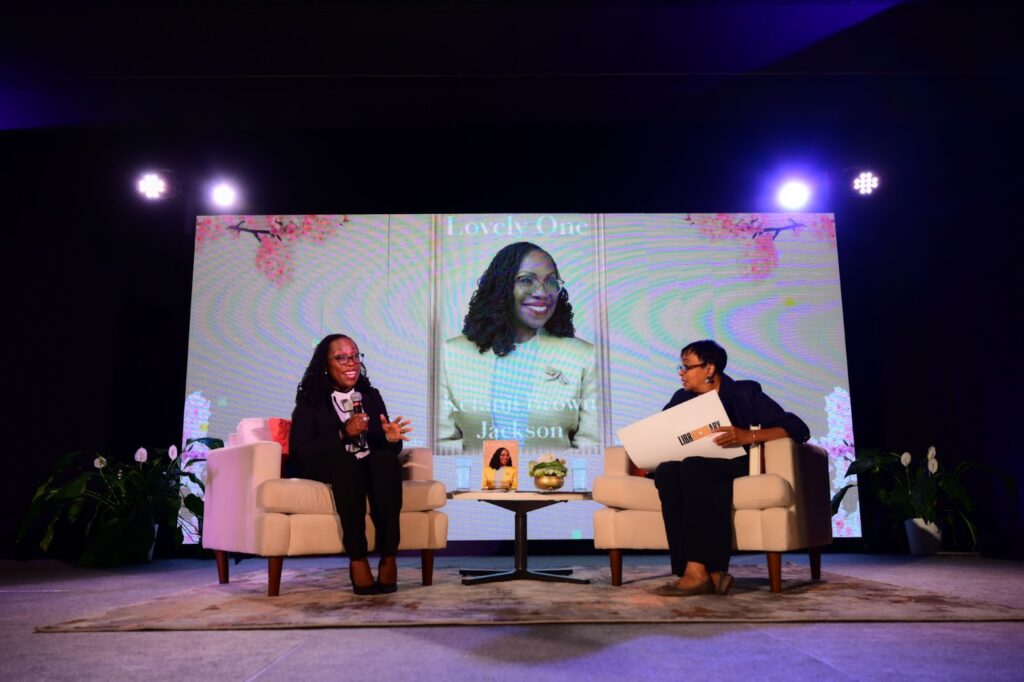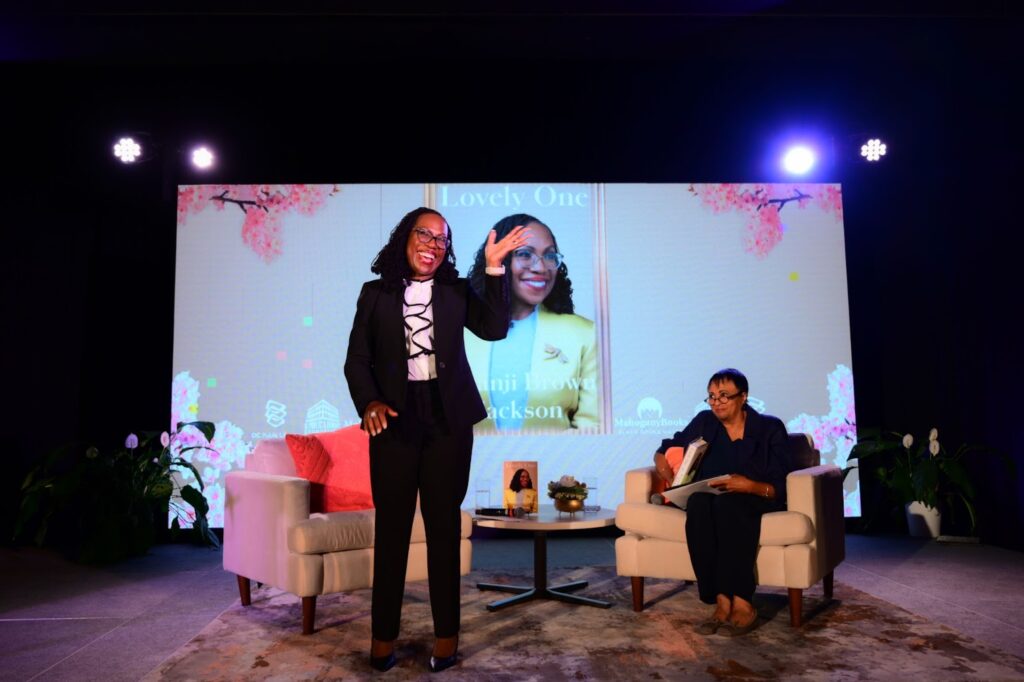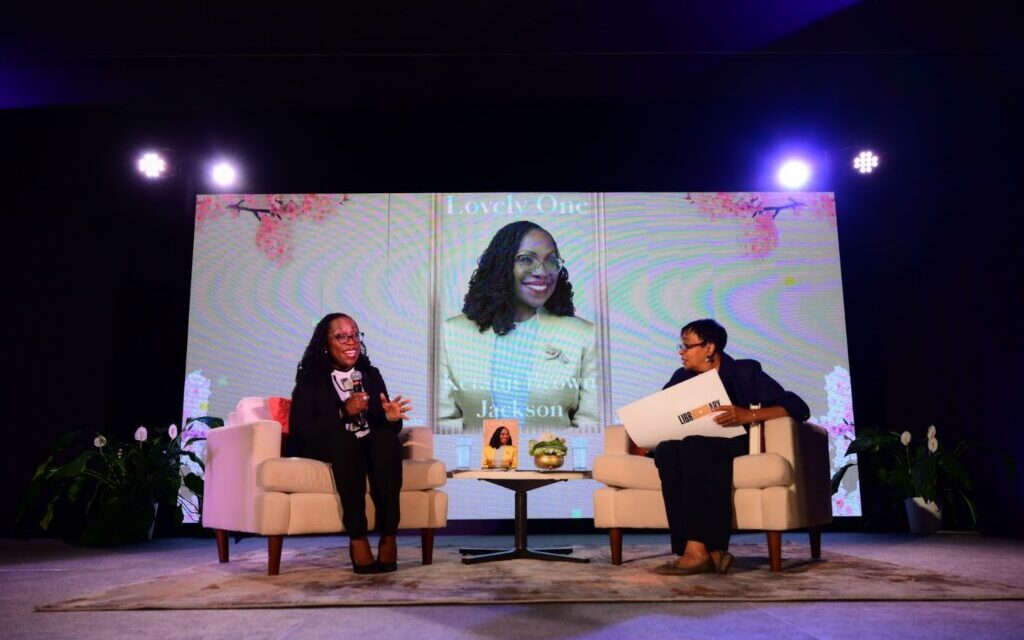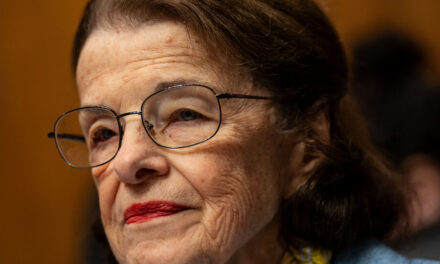
Supreme Court Justice and author Ketanji Brown Jackson discussed her new book, “Lovely One: A Memoir,” with Librarian of Congress Dr. Carla Hayden in collaboration with Mahogany Books at the Martin Luther King Jr. Memorial Library on Sep. 19.
Justice Jackson was sworn in as an associate justice under President Joe Biden’s administration in 2022, which made her the first Black woman to sit on the nation’s highest court. Since then, she’s ruled on controversial cases such as the overturning of Roe v. Wade and the end of affirmative action, both times dissenting in a predominantly conservative court.
The event began with introductions from Richard Reyes-Gavilan, the executive director of D.C Public Libraries. Gavilan highlighted the partnership between Martin Luther King Jr. Memorial Library and Mahogany Books, a Black-owned D.C.-based bookstore focused on uplifting the stories of the African diaspora.
Mahogany Books co-founder Ramunda Lark Young reflected on the guiding principle that led them to their current success.
“We started 17 years ago with the premise of making Black books accessible to where Black people live. Now our impact can be felt nationwide through shipping and the opening of other locations,” Young said.
Following introductions, Dr. Carla Hayden, the first woman and Black Librarian of Congress, opened the discussion.

Jackson shared details about her early life and personal motivators behind pursuing a law career. From a young age, she was exposed to law by her father who was an aspiring lawyer at the time. She said she saw the law as her only path.
“I was flipping through Ebony and Essence magazine where I came across an article on Judge Constance Baker Motley, who I was immediately enthralled with,” Jackson said, recalling that seeing Motley led her to start considering being a judge instead of a lawyer.
The conversation then shifted to her time at Harvard University where she received her bachelor’s degree in government and her law degree. While at Harvard, she met her husband, Dr. Patrick Jackson, who also attended the event.
“We met in a class called the Changing Concept of Race in America. We started off as genuine friends where I was unsure on whether or not he liked me. After some time, we began dating and were together for seven years and have now been married for 28,” Jackson said.
Jackson then transitioned to exploring her climb to the top of the judicial ladder. She was appointed to the U.S. Court of Appeals for the District of Columbia in 2013. Following the passing of Justice Antonin Scalia in 2016, she was encouraged by those around her to aspire to be a part of the highest court in the land.
“My youngest daughter Leila told me to apply for the position as a Supreme Court judge after the passing of Justice Scalia,” she said. “I explain the president has to know about you. She decides to write a letter to the president telling him about me. Later on, it really started to happen.”
She described the process she endured while being considered as a Supreme Court Justice. This included making her private life public in order to join the ranks as one of the few African Americans who have held the position.
Audience member Chase Mitchell, a freshman English major from Oklahoma City, Oklahoma connected with Jackson’s experience of being one of a few Black individuals in predominantly white environments.
“As a young Black scholar coming from a whiter background, I felt very empowered to go beyond where I grew up to get to these higher positions,” Mitchell said.
After a brief Q&A, Jackson closed the discussion by telling the audience her keys to success.
“If my life has shown anything, it has shown that it’s important to work hard, be kind, have faith, and believe that anything is possible,” she said.
Copy edited by Anijah Franklin




